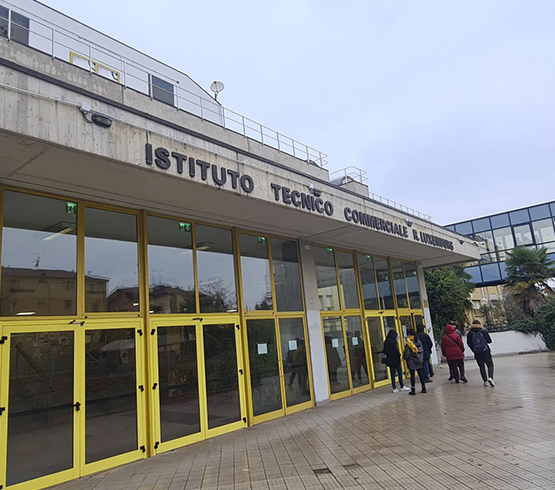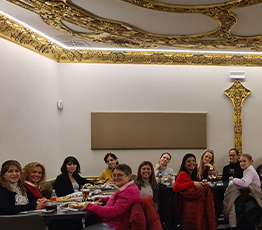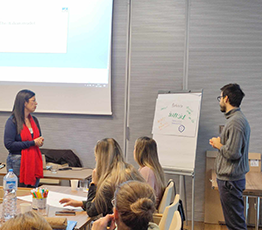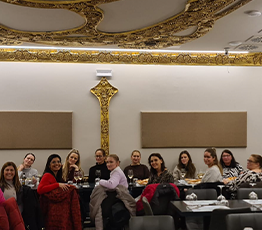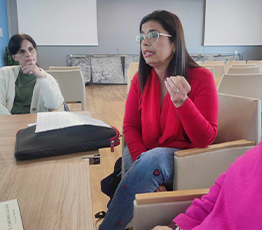







Erasmus+ is an exciting European Union programme that gives students and teachers the chance to learn, travel, and connect with people across Europe. Through projects, exchanges, and collaborations, we explore new cultures, share ideas, and gain new skills that prepare us for the future. At St. Monica School, Erasmus+ opens the door to adventure, learning, and friendship — all while making education more creative and inspiring!
During the first week of September 2025, we travelled to Barcelona to attend the course “Happy Schools: Positive Education for Well-Being and Life-Skills Development” at the EuroPass Teacher Academy. Thanks to Erasmus+ funding, this was not just a course — it was an adventure of a lifetime!
We dove into Positive Psychology and the PERMA Model of Well-Being (Positive Emotions, Engagement, Relationships, Meaning, Accomplishment), exploring how to bring more positivity and mindfulness into both teaching and everyday life. From mindful breathing and meditation to mindful eating (yes, even chocolate tasted better!. We discovered simple practices that help us slow down, appreciate small moments, and find peace in daily life. The most powerful lesson? That happiness can be found all around us.
Our trainer Marta’s energy made every session inspiring, and collaborating with educators from Sweden and Italy enriched our understanding of how different education systems work across Europe. What made the course extra special was how we took the classroom outdoors — practising mindfulness in Gràcia, at the National Art Museum of Catalonia, and in the grounds of the University of Barcelona. These moments made the learning truly come alive.
Of course, Barcelona itself was also our playground. In our spare time, we explored Poble Espanyol, Tibidabo Park with its stunning Basilica of the Sacred Heart, the Wax Museum, the Glòries Tower and flea market, and the famous La Rambla. We hopped on the Montjuïc cable car to visit the castle, took a trip out to the breathtaking Montserrat, cruised the harbour on Las Golondrinas, and spent evenings in Barceloneta enjoying seaside walks, good food, cocktails & sangrias.
This mobility gave us the perfect mix of academic learning, cultural discovery, and fun. We returned inspired, recharged, and full of ideas to bring more positivity and mindfulness into our classroom and our lives.
Would we recommend it? Without a doubt! Even if you’re not a “city person,” Barcelona has something for everyone. A heartfelt gracias to Erasmus+ for making this experience possible.





From the 25th to the 30th of August 2025, we had the privilege of participating in the fully funded Erasmus+ programme Integrating AI in the Classroom with Critical Thinking, held at the Europass Teacher Academy in Dublin, Ireland. The course was expertly designed to equip educators with the knowledge and skills needed to thrive in an AI-driven world, empowering us to use modern AI tools both responsibly and creatively to enhance teaching and learning.
A central theme of the training was reimagining educational data and resources. We were encouraged to move beyond static materials like handouts and presentations, and instead transform information into dynamic, interactive learning experiences. Under the expert guidance of our trainer, Mr. Tomasz Laskowski, we learned how to use AI tools such as Gemini and ChatGPT to design and customize HTML web applications. These applications could convert a simple worksheet into an engaging game-based activity that measures student understanding in real time. Such tools not only deepen classroom engagement but also enrich homework and independent learning.
The course also highlighted the broader applications of AI for education. We explored strategies for personalizing learning, identifying students in need of additional support, developing intelligent tutoring systems, and automating time-consuming administrative tasks such as grading. Importantly, the training underscored the role of critical thinking when integrating AI, ensuring that technology complements rather than replaces the expertise and creativity of teachers.
Equally valuable was the collaborative, international environment of the Erasmus+ programme. Sharing insights with colleagues from across Europe fostered meaningful professional dialogue, broadened our perspectives on different educational systems, and created lasting networks. The cultural immersion in Dublin further enriched the experience, allowing us to enjoy Ireland’s rich heritage and hospitality alongside the academic learning.
Overall, the week was both professionally and personally rewarding. We returned from the programme more confident in our ability to harness AI for innovative teaching, student success, and reduced workload. We would strongly recommend Erasmus+ experiences to fellow educators, as they offer not only cutting-edge professional development, but also the opportunity to broaden horizons, build international connections, and bring renewed enthusiasm and practical strategies back to one’s school.





Our recent course was an inspiring journey into the world of ICT and Artificial Intelligence, exploring how these powerful tools can be woven seamlessly into both classroom learning and outdoor activities. Fully funded by Erasmus+, this opportunity allowed us to develop practical skills and exchange ideas with educators from across Europe.
Led by our knowledgeable tutor, Andrei Ceban, the sessions struck the perfect balance between pedagogy and hands-on practice. Andrei’s expertise, enthusiasm, and engaging delivery meant that even those of us who weren’t particularly tech-savvy felt confident and fully involved from start to finish.
We explored a wide range of digital programmes and AI tools designed to support lesson planning and activity preparation. These resources not only make learning more dynamic and interactive, but also help cater to diverse learning styles, age groups, and the principles of Universal Design for Learning (UDL).
A highlight of the course was discovering how photography and video can become powerful springboards for learning when paired with technology. We learnt how children can start with a single photograph—turning it into scavenger hunts, interactive presentations, animated images, or even short videos—using accessible ICT tools to achieve lesson objectives. These activities make learning both engaging and achievable, while encouraging creativity, critical thinking, and collaboration.
Equally enriching was the chance to meet participants from Hungary, Latvia, Poland, and Spain. By sharing experiences and comparing approaches to teaching, we gained fresh perspectives and practical ideas for good practice—proof that collaboration truly knows no borders.






In July, we participated in the Europass Teacher Academy course Artificial Intelligence Tools for Language Teachers, held in Valencia. The course was fully funded by Erasmus +.
The programme provided comprehensive training on the use of artificial intelligence in education, with a particular focus on maintaining a student-centred approach while integrating innovative technologies.
The course introduced a variety of tools, including Quizzes, Magic School, and Canva, which support teachers in the preparation of instructional materials and assessment activities. In addition to technical training, the program addressed pedagogical considerations, emphasizing how to introduce AI-based resources such as ChatGPT and Gemini in a responsible and ethical manner. Importance was placed on developing students’ critical thinking skills, ensuring they can evaluate AI-generated information with discernment and apply it appropriately in academic and professional contexts.
The experience was further enriched by collaboration with teachers from several European countries, including Italy, Portugal, Poland, and French Martinique. Discussions with international colleagues provided valuable insights into diverse educational practices and contexts.
Beyond the academic dimension, the course offered the opportunity to experience Valencia’s cultural heritage. The historic city centre, combined with the city’s vibrant atmosphere and culinary diversity, contributed to a holistic and memorable learning experience.
Overall, participation in this course has significantly enhanced our professional competence in the use of AI tools for education, while also fostering international exchange and cultural enrichment.




From the 30th of June to the 5th of July, we – Anna Bartolo Gauci, Geraldine Meilak, and Sarah Jane Perini – had the opportunity to attend the 7Cs for 21st Century Learners training course in Budapest, Hungary, fully funded by Erasmus+.
The course explored seven essential soft skills for today’s learners: Critical Thinking, Creativity, Collaboration, Communication, Computing & ICT Literacy, Cross-Cultural Understanding, and Career & Learning Self-Reliance. Over five intensive days, we took part in theory sessions, group discussions, and practical activities designed to help integrate these skills into classroom practice.
We not only learned new strategies and activities to engage our students, but also had the chance to exchange ideas with educators from different countries and backgrounds. Hearing about the challenges faced in other education systems helped us appreciate the progress being made in our own schools, while inspiring us to keep moving forward.
Beyond the academic benefits, the experience was socially and culturally enriching – from sharing perspectives with fellow participants to immersing ourselves in the beauty and history of Budapest. While the course was fast-paced, it left us motivated and eager to implement what we’ve learned.
We would highly recommend such Erasmus+ opportunities to fellow educators. They provide valuable professional growth, broaden horizons, and foster connections that go beyond borders – all of which ultimately benefit our students.



The Erasmus+ course I attended last September was entitled ‘Promoting Students' Wellbeing and Mental Health in Schools’. In this course we discussed topics that are very relevant to my role at school, such as the importance of students' mental health to be able to function adequately within the classroom environment and the importance of a whole school approach to achieve this.
We discussed what could be today's risk factors to our students' mental health such as bullying, cyberbullying, Covid and wars, and what the protective factors are. The importance of self-awareness and emotional intelligence in teachers and students alike were also emphasized, with particular reference to Coleman’s Five Pillars of Emotional Intelligence. We participated in several activities such as The Awareness Map Activity, The Self Control Activity, The Wheel of Emotions, Map of Values, The Chair Activity and The Optimism/Gratitude Journal to mention just a few.
We also discussed the SMART Goal Approach to motivating oneself and reaching one's goals and the importance of empathy as opposed to sympathy. Various highly relevant topics such as mindfulness, identity, values, resilience and cognitive and behavioural strategies for coping with stress were also included and provided much food for thought. Overall, this Erasmus+ training was a very enriching experience.
Maris Sant
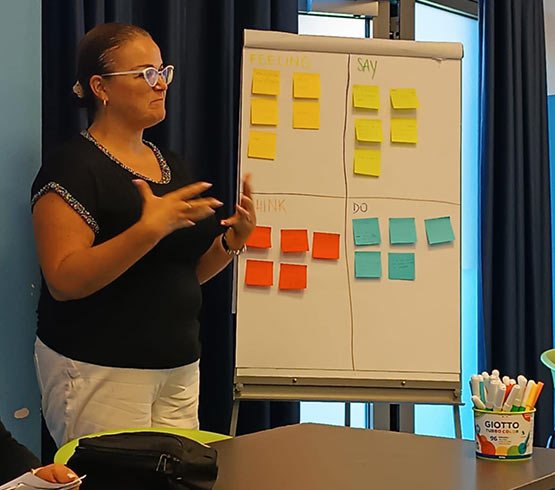
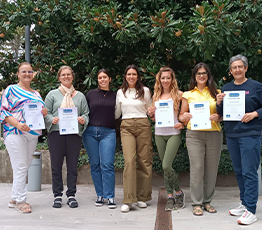
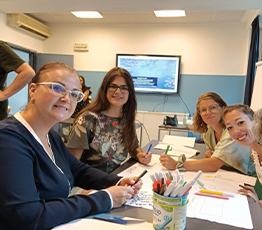
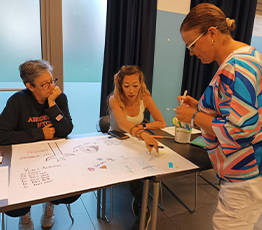
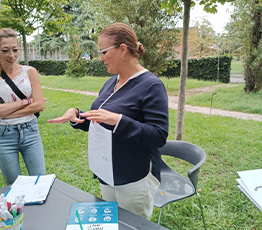
We recently had the incredible opportunity to participate in a fully funded Erasmus+ programme in Dublin, Ireland, entitled Yoga and Meditation for Educators: Being a Great Teacher, Being Your Best Self. It was an unforgettable journey of personal growth, professional development, and deep connections with fellow participants from across Europe.
The course focused on using yoga and meditation as tools for stress reduction, relaxation, and overall wellbeing—vital aspects for educators who often face high levels of stress in their daily work. Guided by our amazing instructors, Amy O'Brien and Susan Ní Dhubhlaoich, we explored different practices that helped us connect with our inner selves and find balance, not just as teachers but as individuals.
Amy and Susan were more than just teachers; they were mentors who created a supportive and nurturing environment. Through their guidance, we learned how to incorporate mindfulness, breathing techniques, and physical yoga practices into our daily routines. These practices have not only helped reduce stress but also enhanced our teaching, giving us tools to be more present and attentive in the classroom.
Meeting people from Germany and Slovenia added another layer of richness to the experience. Sharing perspectives, experiences, and challenges with fellow educators from different countries made the learning experience even more meaningful.
The most profound takeaway was the shift in how we view life. The simplicity of the practices we learned helped us appreciate the small moments and the beauty around us. It taught us how to slow down, breathe, and find peace in everyday life.
This experience was life-changing, and we highly recommend others to apply for an Erasmus+ programme, such as this one. The skills we gained and the connections we made will continue to enrich our lives, both personally and professionally.
Michela Flint, Rachel Bonett, Clara Zammit Cilia and Anna Aquilina

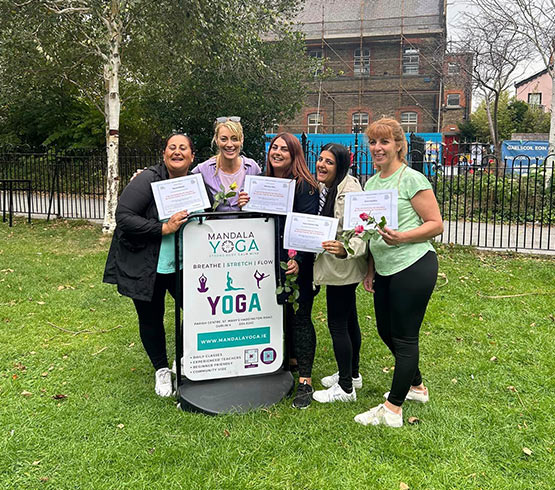
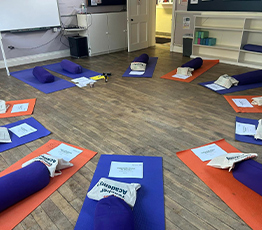
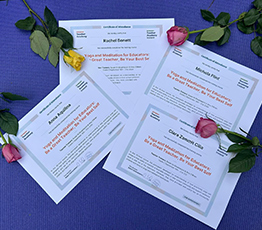
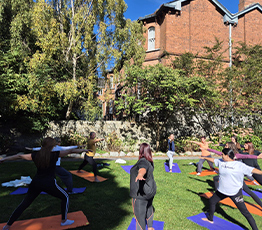
We recently attended a fully funded Erasmus+ course entitled ‘Stress and Conflict Management: The Way to Resilience’ in Bologna, Italy.
Through this course we gained an important insight on stress and discussed the nature of stress and the contrast between eustress, which is a motivating form of stress, and distress, which often hinders productivity. We reflected on how stress manifests itself in our professional lives and this increased our understanding of the ways in which stress can impact the learning environment.
At times, there may be a perceived sense of stress. When one tries to quantify stress or identify stressors, it is often found that the level of stress is not as high as initially perceived. We were introduced to various cognitive and behavioral strategies for managing stressful situations. Emphasis was placed on reframing negative thoughts and developing practical time management techniques.
Another crucial aspect of the course focused on emotional intelligence. We delved into the importance of empathy and self-awareness as essential components in managing stress. We learned how being emotionally attuned to ourselves and others could lead to more harmonious interactions and reduced stress levels.
The topic of conflict was also addressed, challenging the common perception of it as purely negative. We discovered how conflicts, when approached constructively, could be opportunities for growth and improved communication.
We engaged in stress reduction games and mindfulness practices. These techniques offered practical ways to manage stress, ensuring that we could implement what we had learned into our professional environment.
Other course participants were from Finland and Iceland, with educators working in different educational environments ranging from Adult Learning Centres to Universities. It was a varied group that contributed in a diverse and interesting manner.
We had time to explore the vibrant city of Bologna and some surrounding towns. It was a good socio-cultural and educational experience which is beneficial for us educators in today’s fast-paced educational landscape. Such training opportunities are enriching experiences that we recommend to all educators.
Abigail and Elizabeth

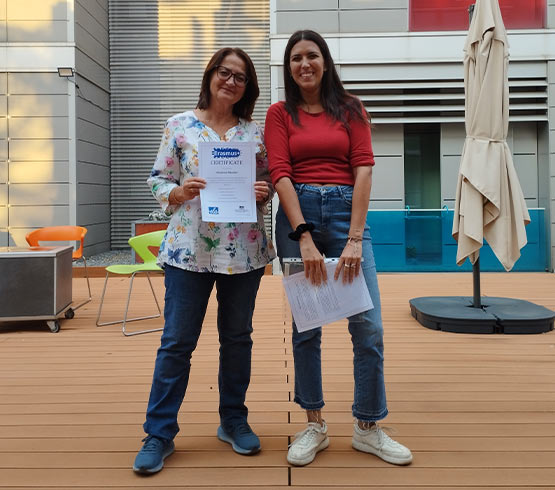
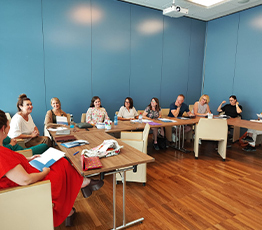
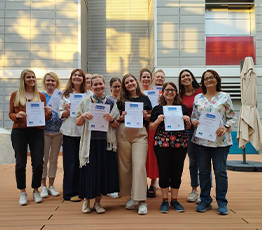
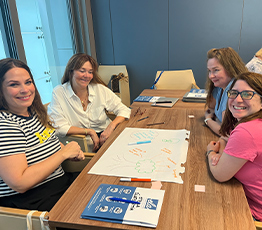
Last September, I had the privilege to take part in the Europass Teacher Academy course, entitled ‘Supporting Diversity with Intercultural Education in the Classroom’ which was held in Istanbul, Turkey. This was a once-in-a-lifetime opportunity and it made me realise that taking the leap and going on my own was an experience that has changed my perspectives and shaped me into a more independent and responsible self.
Making friends from around the globe is beyond special, and it is such a unique experience to share ideas, knowledge and own experiences with people with different cultures, traditions and beliefs. In today’s world it is essential to embrace diversities and strive to learn from one another. In doing so, we also experience personal growth. So, I feel privileged to have shared wonderful memories with people from across the globe, including Slovenia, Germany, Romania and Greece, who I now consider friends.
The training course was highly informative, and it was evident that the tutor, Ms Cynthia was very well-prepared to deliver a high-quality course, which included time to share our own experiences and ideas on the topics discussed. Subsequently, the course also incorporated several hands-on activities which were equally fun, learning opportunities, including poster-making and a treasure hunt in “Istiklal Street”, one of the busiest and most famous streets in Istanbul.
During the course, we shared multiple enriching discussions on how to promote inclusion and be more considerate of the diversities that we find in today’s classrooms. We also discussed theories related to diversities, including “The Iceberg Theory”, “The Diversity Wheel”, and “The Process of Inclusion”, amongst others. Additionally, we also delved into the importance of showing empathy and how to be aware of the student’s emotional well-being. The teacher’s role goes beyond the academic, and it is important to check-in on the students, to ensure of their overall well-being both at school and at home.
Lastly, I would like to sincerely thank everyone who encouraged me to pursue this marvellous educational experience that provided much personal growth, and I take the opportunity to encourage others to experience this for themselves.
Tiziana Dalli Farrugia

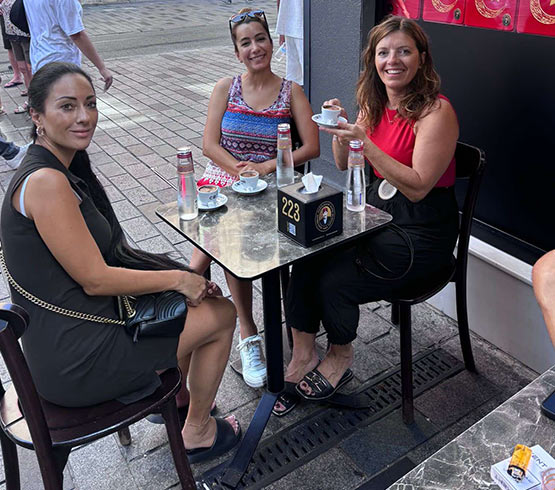
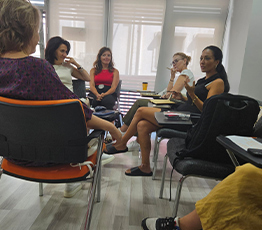
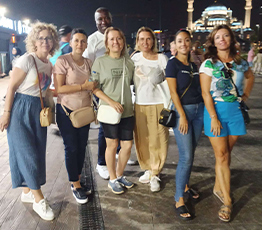
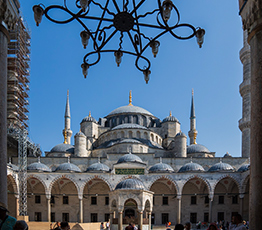
Last July, we had the wonderful opportunity to visit Lisbon, Portugal to attend a course by Europass Teacher Academy entitled ‘Well-being in Nature: Outdoor Activities for Mental and Physical Health’, funded by Erasmus+. There, we engaged with participants from a diverse range of countries, including Spain, Germany, Latvia, Czech Republic, Bulgaria, and Ireland. What stood out most during our time together was the distinct immersion in nature that characterized many of the participating schools’ educational approaches. Despite Malta’s limited natural landscapes, we were proud to share our innovative methods for integrating nature into our lessons. Our presentation captivated the group, highlighting how we enrich our students’ learning experiences by taking them outdoors. We detailed how, even with limited natural resources, we create holistic educational experiences through hands-on activities. After the presentation, we were approached by the Spanish participants, who expressed interest in visiting our school, having been impressed by our teaching methods.
One memorable aspect of our program was conducting lessons on the beach and in a beautiful garden setting. These environments provided a backdrop for engaging, informative, and interactive lessons. The use of different activity cards was particularly effective, sparking discussions and promoting well-being exercises among participants. In addition to the engaging topics, the course included sessions that encouraged us to reflect on our personal growth and reconnect with our roots. The exercises and activities presented by our tutor, Beatriz, were versatile, allowing them to be adapted to different educational levels, making them accessible and beneficial for all participants.
Two other topics that captured our interest were the PERMA model of well-being and Biophilia. The PERMA model, which stands for Positive Emotion, Engagement, Relationships, Meaning, and Accomplishment, is a framework that helps enhance individual well-being. Biophilia refers to humans’ innate connection to nature, and biophilic design integrates natural elements into spaces to promote a healthier and more engaging environment. These concepts inspired us to consider how we can create greener classroom environments that support our children’s well-being.
Overall, our Erasmus experience was a celebration of cultural exchange and educational innovation, demonstrating that even in varying environments, creative approaches can significantly enhance learning.
Lorraine, Kim and Debbie

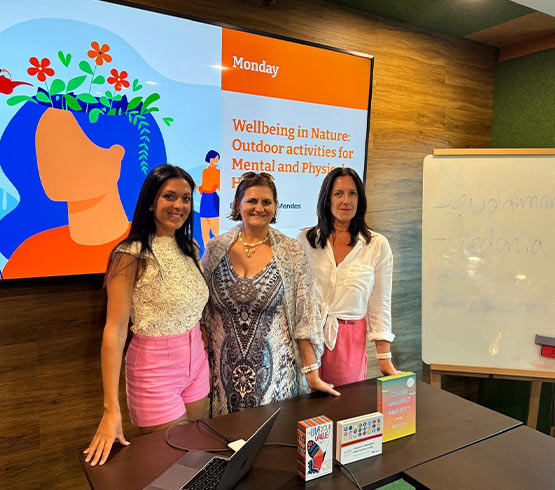
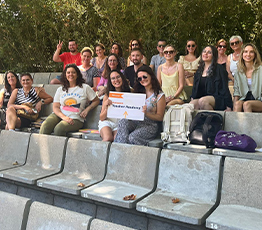
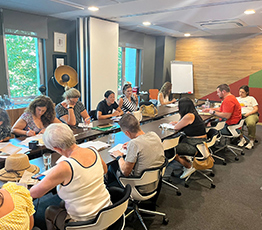
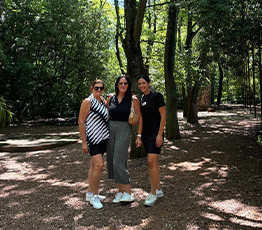
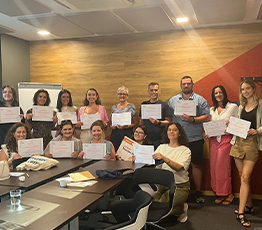
In July of this year, I had the pleasure of attending a course organized by ‘Ela’ – Erasmus Learning Academy in Bologna, Italy, funded by the EU. The course, Effective Group Management in Education: Building Teamwork among Students, focused on one of the most sought-after soft skills in today’s job market: teamwork. Through engaging lectures, we explored valuable tools and strategies in team management and leadership, learning how to guide students in collaborative environments.
One of the most interesting aspects of the course was understanding team dynamics. We delved into how to help students work effectively in teams, how to coordinate group activities, and how to coach students either as part of a group or individually. This course also provided me with valuable insights on creating and developing team-oriented activities in the classroom.
A particularly enthralling session was on Emotional Education in Groups, where we participated in hands-on activities designed to help students manage their emotions within a team setting. These exercises were practical and adaptable, offering real-world techniques I can implement in my teaching to help students better understand teamwork.
Most importantly, the course emphasized how to teach students the intricacies of teamwork: defining both common and individual goals, understanding different roles within a group, managing conflicts, and staying focused on the final objective. This approach reinforced the idea that teamwork is not just about collaboration but also about fostering self-awareness and conflict resolution.
The experience was further enriched by the presence of fellow teachers from Spain, Portugal, Greece, France, Poland, and Hungary. The exchange of ideas and experiences, both professionally and personally, was incredibly rewarding. Hearing about their diverse educational practices and perspectives broadened my own understanding of teaching in an international context.
Beyond the academic side, the course offered a holistic experience. From attending insightful lectures to forming lasting connections with teachers from across Europe and immersing myself in the rich culture of Bologna and its neighbouring villages, it was an experience I wholeheartedly recommend to my colleagues.
In short, this course was more than just professional development; it was an opportunity to grow as both an educator and an individual.
Sharlie Laferla

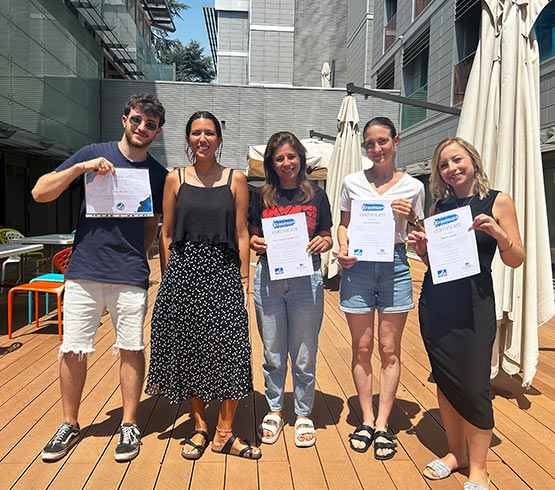
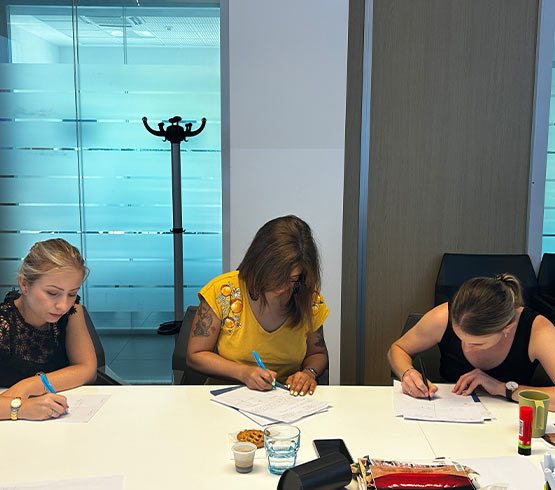
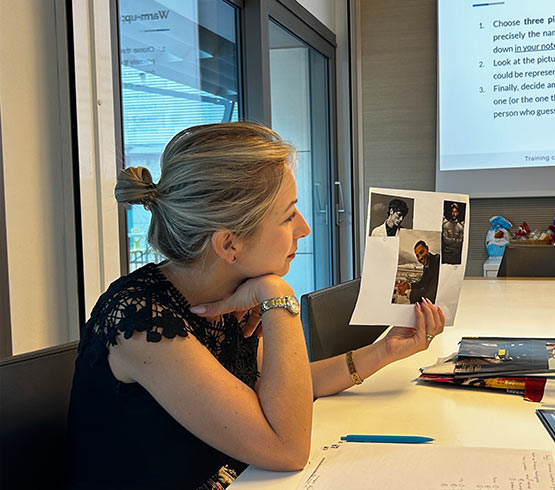
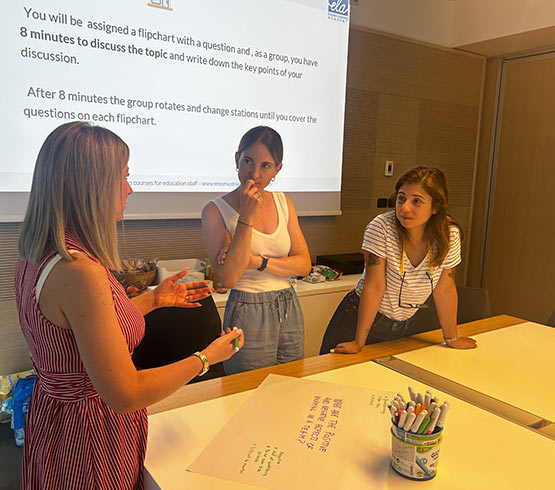
Last July, we participated in Erasmus+ mobility training in Budapest, Hungary. The course, entitled Mindfulness for Teachers: A Hands-on Approach, was delivered by Tamara Schüszler and centered around the practice of mindfulness in our daily routine. As educators, we tend to give a lot to those around us, and sometimes we need to ‘fill our cups too’. Mindfulness is all about focusing on one’s feelings and emotions in the present, and keeping our consciousness alive (Hanh- Finch,1987, p.1). Emotions are mental reactions that trigger our behaviour. However, one must understand that emotions are meant to be felt. Emotions are complex psychological states that involve three distinct components:
1. Subjective Experience: This is the personal experience of an emotion such as feeling happy, sad, fearful, or angry.
2. Physiological Response: This includes the physical reactions to emotions such as increased heart rate, and sweating.
3. Behavioural Response: This is how one expresses emotions through actions or behaviours such as smiling, crying, and yelling.
4. Mindfulness is the practice of paying attention to the present moment in a non-judgmental way. It involves:
Awareness: Being conscious of your thoughts, feelings, and sensations.
Acceptance: Observing experiences without trying to change them or reacting impulsively.
Understanding the interplay between emotions, behaviour reactions, and mindfulness is crucial for personal development and mental health. When one experiences positive emotions, the focus is broader and development takes place, while with negative emotions the focus is narrower. This shows the importance of learning how to channel them out. Furthermore, during the sessions, we went through different body movements to engage with our inner self, and therefore put the theory into practice, to let our emotions come and go. We practiced mindfulness meditation, finger flicks, and mindful breathing. The benefits of such practices are resilience, improved relationships, and reduced stress. By cultivating mindfulness, individuals can better understand and regulate their emotions, leading to more adaptive and constructive behaviour reactions. This holistic approach enhances overall well-being and emotional intelligence. In addition, a mindful educator creates a calming environment, which can significantly enhance students' comfort and learning, allowing them to feel secure, relaxed, and open to participating in class. This positive atmosphere can foster better communication, increased engagement, and overall improved academic performance.
This Erasmus training has enhanced our learning experience as educators, because we have engaged with the material through discussions and hands-on activities. Listening to different perspectives on curriculum implementation from educators around the world is invaluable, especially when addressing issues beyond our control, such as a student's background, physical, or mental ability. The vision and appreciation for our role as Learning Support Educators (LSEs) were wonderful. Their recognition increased our motivation and job satisfaction. Ultimately, this highlights the importance of our contributions to the educational environment, as we provide essential support to students and help them overcome challenges. This is especially significant considering that, in some countries, students with diverse needs are not included in the daily school routine.
This Erasmus+ training was a positive experience, offering us a unique opportunity for personal and professional growth through international collaboration and cultural exchange. Participants gain new skills, broaden their perspectives, and develop a deeper understanding of different educational practices. We highly recommend Erasmus+ mobility training experiences to other educators because this collaborative approach provided us with fresh insights, alternative strategies, and mutual support. We had the opportunity to get to know how other educators work within the EU, namely in France, Spain, and Lithuania in comparison to the Maltese educational system, understanding what works for them and why. Such experiences provided us with insights on how we can improve our skills as educators by picking up on new ideas. This exchange was reciprocal, as our counterparts were interested to hear about how our the Maltese educational system works. Exchanging ideas and experiences was a very enriching and educational experience for us all. It helped us to grasp a better understanding of diverse cultural experiences and find effective ways to support students, ensuring that their needs are met as comprehensively and holistically as possible. Overall, Erasmus+ training is a rewarding experience where participants benefit both personally and professionally.
Karin Micallef
Leanne Dimech Chetcuti
Rachel Gatt

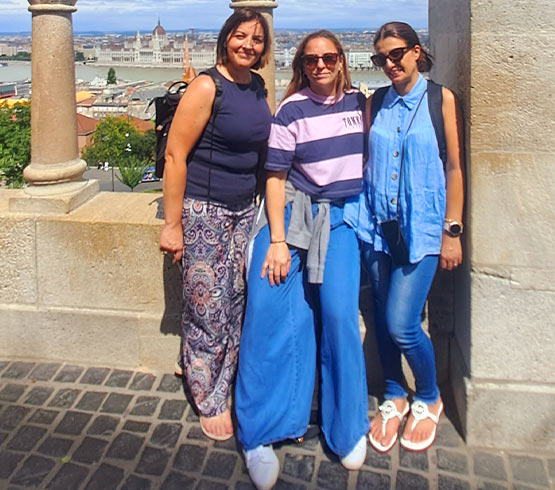
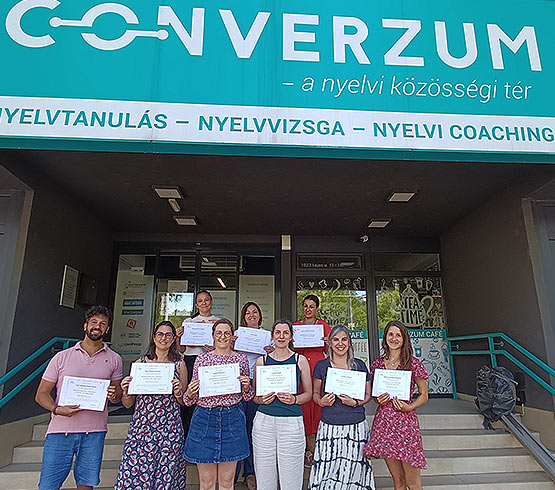
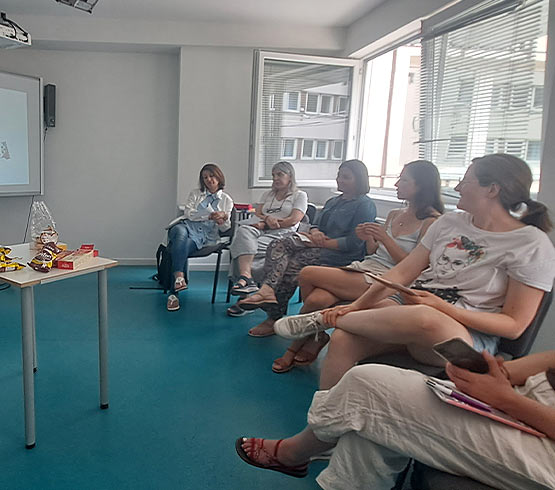
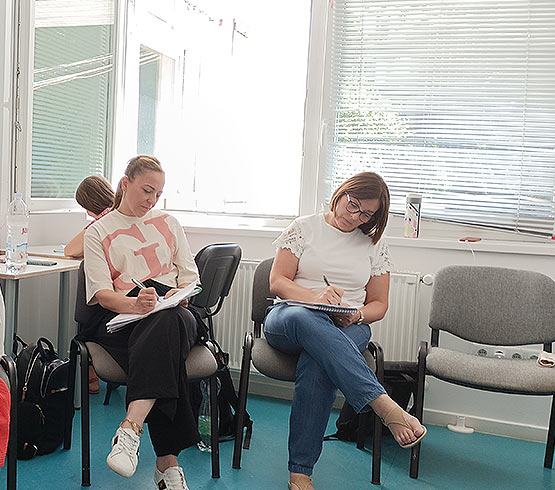
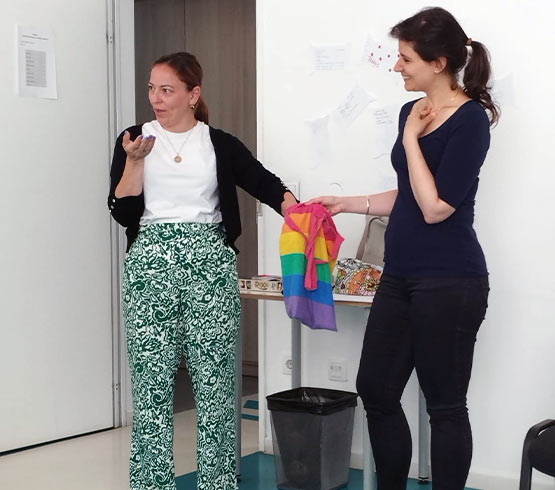
Innovative Educational Leadership: Your Soft Skills Toolkit
I recently had the opportunity to attend a very interesting training course on how to apply leadership and management skills to successfully motivate and direct others at school. Primarily, I chose this course as it was designed for school leaders who are looking to understand and enhance their soft skills while becoming more effective in their roles as leaders in their educational community.
Whilst engaged in various activities and discussions, the group aim was to develop their leadership skills, including communication, problem-solving, collaboration, and change management in a school leadership context. Such skills are crucial for any leader, but especially in a school environment where adaptability and clear communication can make all the difference.
Mr Robert Schwamborn was a very well-prepared course trainer who helped in creating a network with participating educators and leaders from Malta, Sweden and Poland. We discussed school practices, being similar or different in our countries and cultures while sharing best practices and gaining new perspectives on educational leadership.
While focusing on the role of innovation in educational leadership through various models of leadership and management practices, such as the KASAB and SPRINT, we as participants discussed how we can apply our newly acquired skills to drive change and improve the quality of teaching and learning from the perspective of the student, teacher and principal.
Through activities and reflection, we had the opportunity to work on our own leadership styles practiced at school and to identify areas for improvement.
In every planned learning outcome, as school leaders we kept in mind the fostering and development of soft skills as our mission to inspire others (students and teachers) to believe in themselves and attain success.
Towards the end of the week, the group reflected on creating an action plan to improve leadership skills and implement innovative ideas.
It was a very positive and rewarding week, working with others and understanding the importance of soft skills in educational leadership while developing the necessary skills and knowledge to become more effective in my role.
Moira Saliba
___________
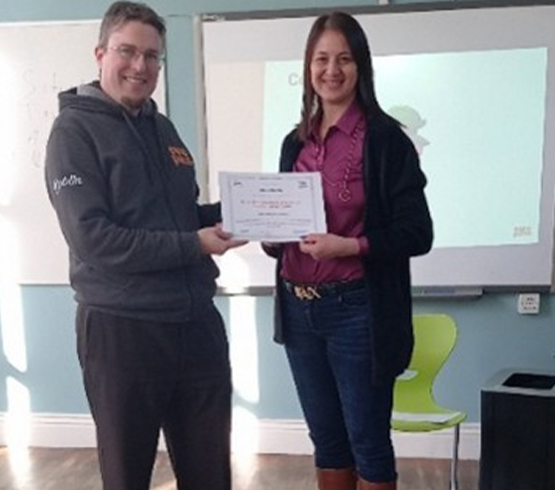
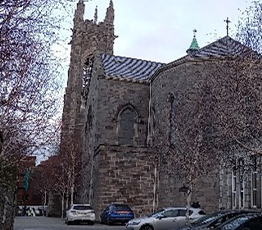
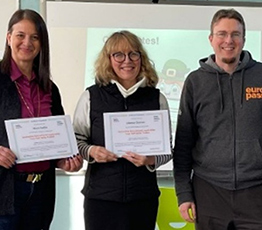
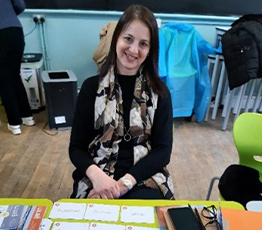
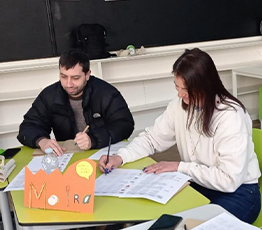
Earlier this year I had the opportunity to attend the following course: ‘Promoting Creativity, Critical Thinking and Problem-Solving in the classroom’, organised by ‘Ela’ Erasmus Learning Academy in Palermo and funded by the EU. My cohort consisted of teachers from Hungary, Belgium, Estonia, and Malta. The course was very enlightening as besides providing the opportunity to network with teachers from the EU, it also allowed time and space for practice sharing.
During the course we used and tested a variety of digital tools that can be applied during our lessons and delved into different theories dealing with creativity and critical thinking, mainly Edward DeBono’s lateral thinking and his thinking hats, and Graham Wallas and the five stages of the creative process.
This course was extremely relevant and has helped me re-think, be more critical, reflect and bring out my creativity in the way I look and perceive things around me. It has enriched both my teaching and problem-solving skills, which can be applied beyond the classroom environment.
Diandra Barberi
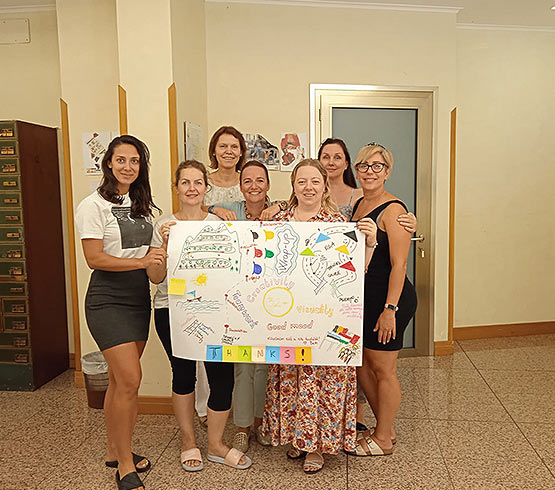
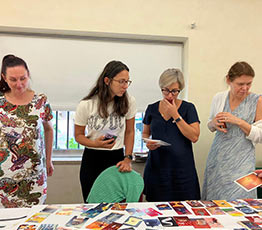
Between the 2nd and 9th September 2023, I attended a course named ‘Effective Group Management in Education: Building Teamwork Among Students’ that took place in Tenerife. The participants came from across Europe, with Armando, Romeo, Elena, Raffaela, and Chiara from Ancona in Italy, Monika from the Czech Republic, and Val?rijs and Randa from Latvia. During this course, which also had a strong focus on coaching and emotional intelligence, we discussed the traditional role of a teacher which involves transmitting knowledge and facilitating skill development in students as opposed to coaching. The coach is tasked with supporting and motivating their students through active listening, questioning, and posing challenges. While these roles may appear distinct, the target was that a teacher can find ways to integrate coaching principles into the classroom, becoming both an educator and a motivator, whilst at the same time promoting more effective group management and greater teamwork.
The course began with the Coaching Ourselves part. We explored our own skills and checked which area of our personal and professional life needs most attention at the moment in order to set a goal.
Next, we moved to an exploration of Emotional Intelligence, which refers to the capacity to not only recognize our own emotions but also understand the emotions of others. This awareness enables a teacher to establish a connection with students, assisting them in managing their feelings effectively.
Coaching entails inspiring and guiding individuals to become the best versions of themselves. To enhance our coaching abilities, we delved into the concept of setting SMART goals. We were tasked with defining SMART goals for ourselves. Later using the GROW model, we tried to do our first coaching session, in order to understand how it really works.
As coaches, our role is to facilitate dialogues and support students in finding their solutions. It is crucial to note that a coach's function is not to impose solutions but rather to guide the analysis of the conflict, aid in decision-making, and evaluate behaviour.
Throughout this training week, we had the opportunity to share our collective experiences and draw insights from our diverse cultural backgrounds. We honed our teambuilding and coaching skills, and discovered practical ways to apply them effectively in our classrooms. I am so grateful for this remarkable opportunity, and I encourage others to find similar courses in a field they are interested in.
Lorraine Attard

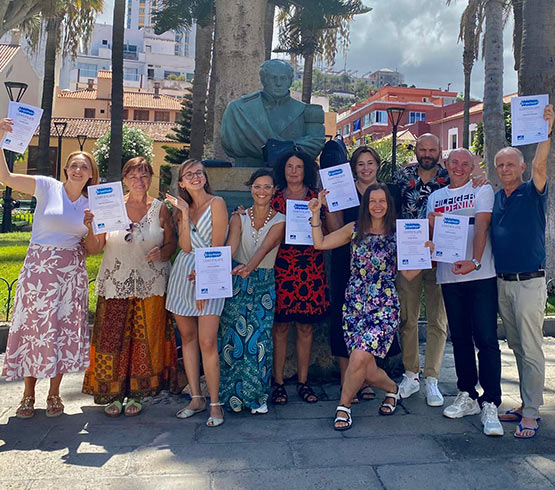
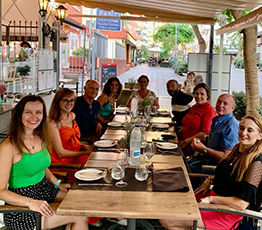
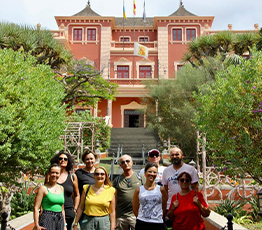
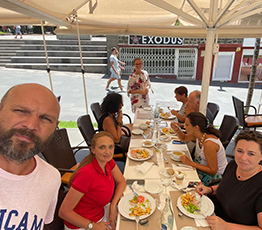
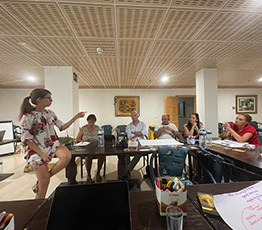
Earlier this month, we had the opportunity to attend an Erasmus+ fully funded staff mobility training course with Smart Teachers Play More in Reykjavik, Iceland. Throughout the week, we had a variety of activities planned for us which we participated in. The course focused on several topics such as storytelling and learning through play, mindfulness, and yoga for children. There were several obstacle courses, games and movement activities organized which were hands-on and easy to implement in class. We also had the chance to share our good practices with other teachers and listen to their ways of implementing movement and fun in the classroom. On another occasion, the host organised a cultural night where everyone brought some delicacies from their own country. We also had the opportunity to visit one of their government schools Dalskoli, which ranged from kindergarten to secondary school. We were given time to explore the school, getting to know about their facilities, timetables and curriculum. It was a wonderful opportunity which inspired us and gave us great ideas for our everyday practice.
![]()
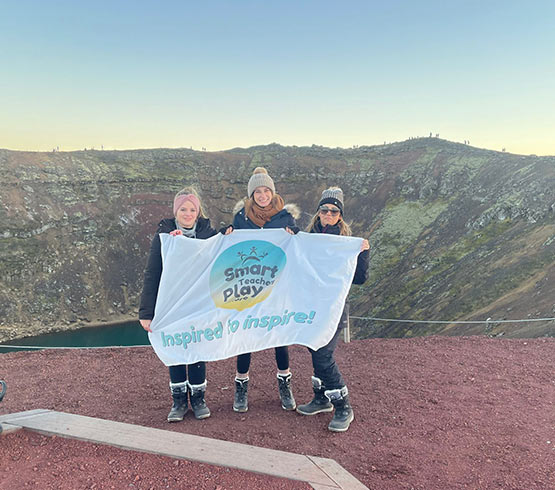
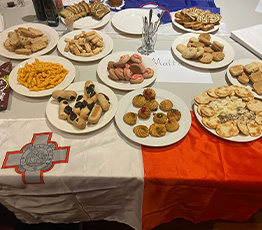
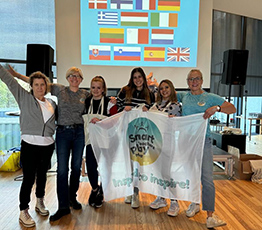
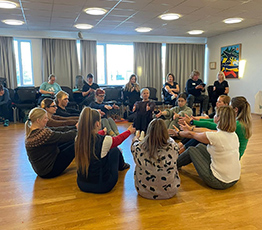
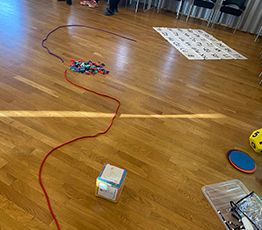
We recently had the privilege of attending an Erasmus+ course on environmental education in Heraklion, Crete. This experience was truly transformative.
The course revolved around Sustainable Development Goals (SDGs) and provided a unique blend of learning and exploration. It opened our eyes to global issues like climate change, biodiversity, and clean energy while offering a chance to appreciate the stunning Cretan landscape.
This journey was not just educational but also a personal and professional growth opportunity. It equipped us with essential knowledge and skills, nurturing our passion for environmental conservation. We discovered new perspectives on sustainability, gaining a deeper understanding of our responsibility towards the planet. This course also equipped us with the knowledge and skills to be more informed and conscientious global citizens, helping us contribute to a brighter future. The international connections we made with fellow participants were also invaluable.
We are inspired to continue our environmental journey and encourage others to seek similar programmes and opportunities.
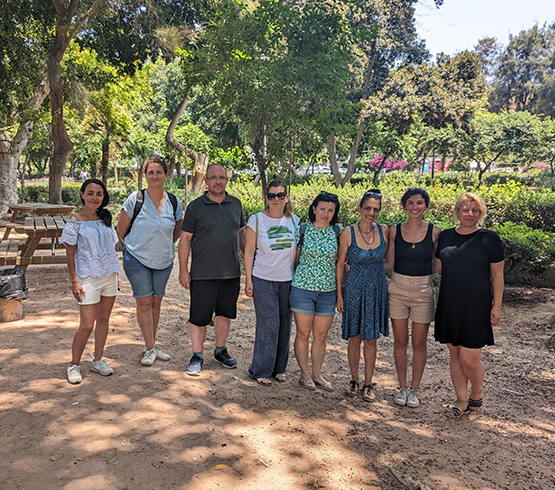
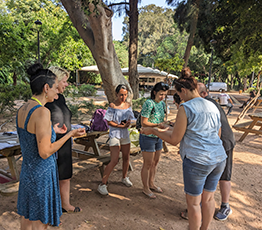
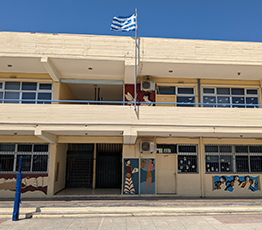
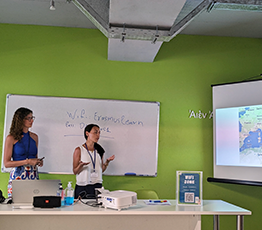
Our Erasmus+ journey to Nice, France, from the 11th to the 16th September, was an extraordinary and enriching experience, where thanks to EU funding, Monica, Jasmine and I had the opportunity and privilege of participating in a Europass Teacher Academy programme entitled ‘Life Coaching for Happy Teachers: Happy Teachers for Better Students’.
This opportunity brought us in contact with educators from around the world, including Japan, Greece, Spain, Finland, and Hungary. Interacting with such a diverse group of teachers was an eye opening experience, allowing us to gain insights into different teaching methods, cultures, and educational systems. This training was a comprehensive blend of scientifically proven activites and strategies designed to enhance various aspects of our lives. We delved into the concept of mindfulness, focusing on the importance of discipline and respect both for ourselves and our students. These discussions covered mental, physical, and emotional well-being and strategies for dealing with challenging colleagues. Our personal and professional development was further enhanced as we explored our strengths and learned how to manage the delicate work-life balance, guided by the concept of the ‘healthy mind platter’. We also delved into an examination of our emotions and values, helping us to identify what truly matters to us individually. Problem-solving strategies were an integral part of the training, equipping us with tools to address challenges creatively and effectively. Additionally, we gained insights into the importance of adhering to protocol in our professional lives. However, this experience was about more than just the curriculum. It was an opportunity to forge lasting connections with educators from across the globe, allowing us to learn about their unique cultures, schools, and the joys and difficulties they face in their educational environments.
In summary, our time at the Eurpoass Teacher Academy in Nice was not only educationally enriching but also a wonderful opportunity to broaden our horizons and build a global network of fellow educators. The skills and insights gained during this training will undoubtedly continue to shape our personal and professional lives, making this a truly remarkable experience.
Jasmine, Monica & Connie

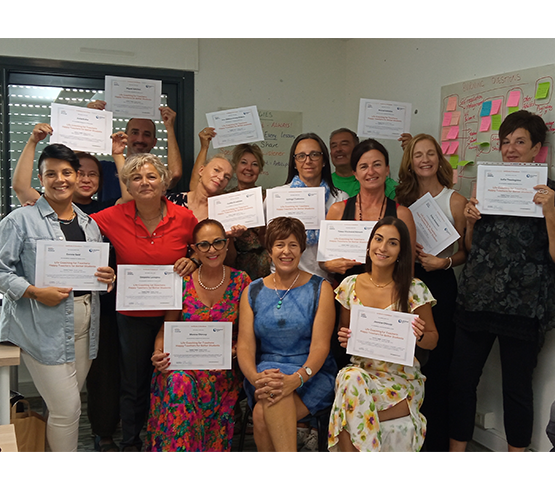
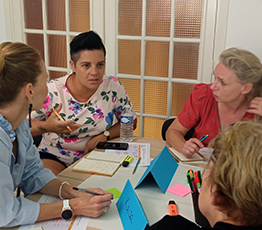
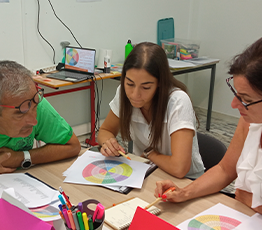
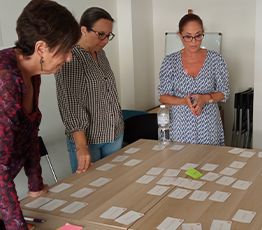
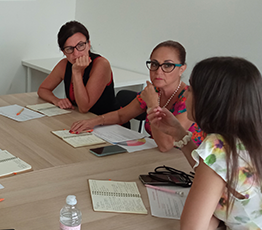
The Italian Experience of Overcoming Segregation
Between the 26th of November and the 2nd of December 2023, I had the opportunity and the privilege to join other educators from Serbia, Croatia, Spain, and Gozo in Bologna, Italy for this EU-funded Erasmus+ staff mobility training.
We started off by going over the key principles, benefits, and values of inclusive education, before moving on to the Italian inclusive education model of overcoming segregation and including students with special needs in mainstream education. We also had the opportunity to discuss the practical side of this model with Italian support teachers and delve deeply into the challenges faced daily by educators in trying to implement inclusion for all. The course included a visit to an Italian secondary school where we could observe teaching in “mixed” mainstream classes. The course was passionately delivered by a man who has not only been advocating and delivering similar courses for a decade but has also become a parent of a child with disabilities in recent years. He was therefore in a key position to give us his own personal experiences as a parent within the inclusive education setting, as well.
It was a most enriching experience because it gave me the opportunity to reflect on my professional practices and compare these same practices with those in other countries. It also provided the ideal scenario to tap into the wealth of experiences of other educators.
Mariella Zahra

